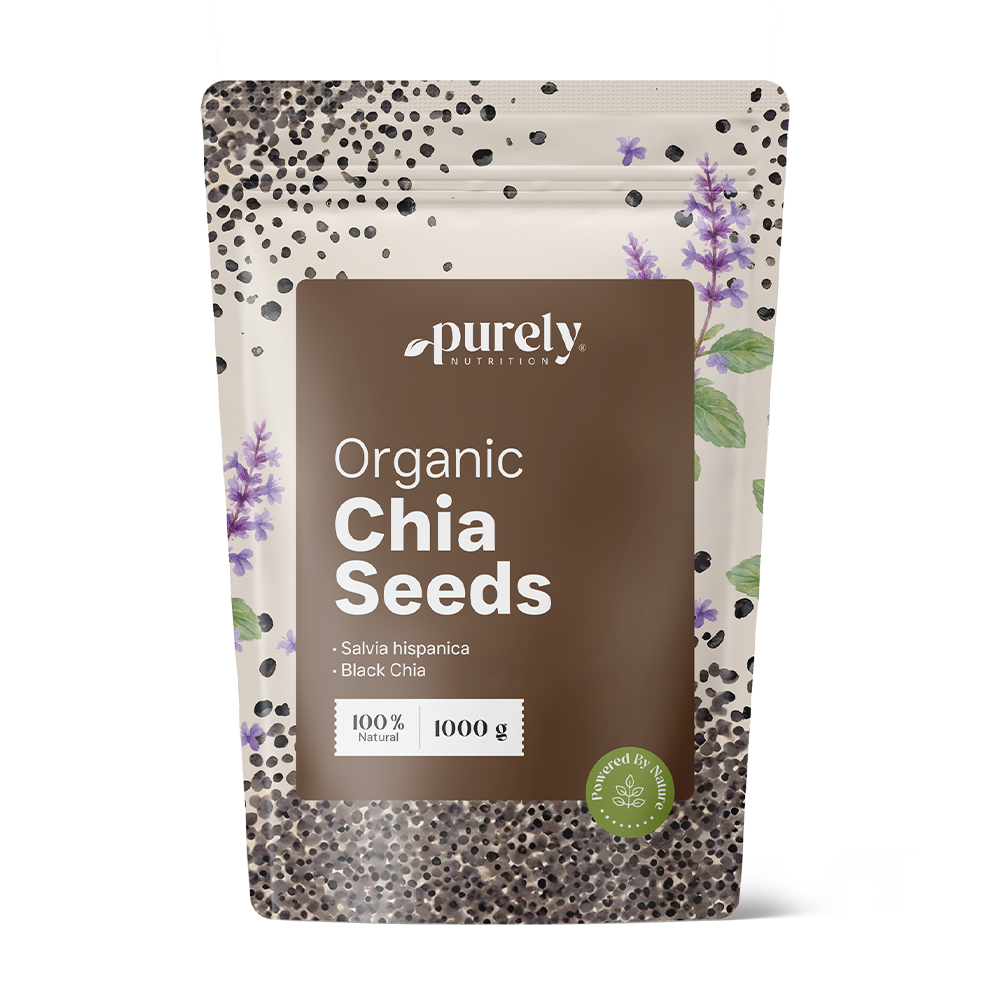Organic Chia Seeds
- large packaging
- versatile use
- natural source of protein and fiber
- Product is in stock
- Valid at least until: 31/01/2027
- Shipping today!

Chia seeds are an essential part of a balanced diet today, but their history dates back to ancient civilizations of the Mayans and Aztecs. They are small seeds of the plant Salvia hispanica, which belongs to the mint family and originates from southern Mexico and Guatemala.
Over 5000 years ago, chia seeds were valued as an extremely nutritious food. The Mayans considered them as "food of the warriors", believing that they give strength and endurance to the body. This is also where the name "chia" comes from, which means "strength" in the Mayan language.
In addition to their rich history, chia seeds also boast exceptional nutritional properties. They are an excellent source of dietary fiber and protein, and their unique ability to bind liquid - when soaked in liquid, they swell and form a gel-like structure, making them great for thickening and preparing various dishes.
Due to their neutral flavor, they go well with a variety of dishes - both savory and sweet.
You can use them for:
Organic Chia Seeds are produced in accordance with the highest ecological standards, without allergens, and are suitable for vegans, making them an ideal choice for those looking for a nutritious, natural, and versatile addition to their diet.
| Average nutritional value | per 100 g |
|---|---|
| Energy value | 1863 kJ / 452 kcal |
| Fat | 32 g |
| - of which saturated fats | 3 g |
| Carbohydrates | 4 g |
| - of which sugars | 0 g |
| Dietary fiber | 32 g |
| Protein | 21 g |
| Salt | 0 g |
Due to the natural origin of the ingredients, nutritional values may vary.
Ingredients: 100 % chia seeds (Salvia hispanica) from certified organic farming. Distribution supervised by SI-EKO-002. Agriculture outside the EU.
Net quantity: 1000 g
Organic Chia seeds can be used directly on salads, fruit, yogurt, granola, cereals, or added to smoothies and juice. They can also be used to make spreads or salad dressings. When soaked in liquid, they swell and act as a thickener. They are also popular for making desserts and baking.
The daily intake should not exceed 15 g (approximately 3 teaspoons). When baking, their content should not exceed 10% of the mass.
Warning: Food supplements should not be used as a substitute for a varied and balanced diet and a healthy lifestyle.
Store in a cool, dry, and dark place.
It is not necessary, but soaking improves digestibility and prevents potential discomfort in the stomach, as the seeds absorb a lot of liquid.
No, chia seeds are naturally gluten-free.
In most cases no, however excessive consumption, especially without sufficient fluid intake, can cause bloating or constipation
Yes, chia seeds mixed with water form a gel that can be used as a substitute for eggs in baking (1 tablespoon ground chia seeds + 3 tablespoons water = 1 egg).
Yes, chia seeds can easily be incorporated into baking bread, pastries, or other dishes. Heat treatment does not destroy most of their nutrients.

